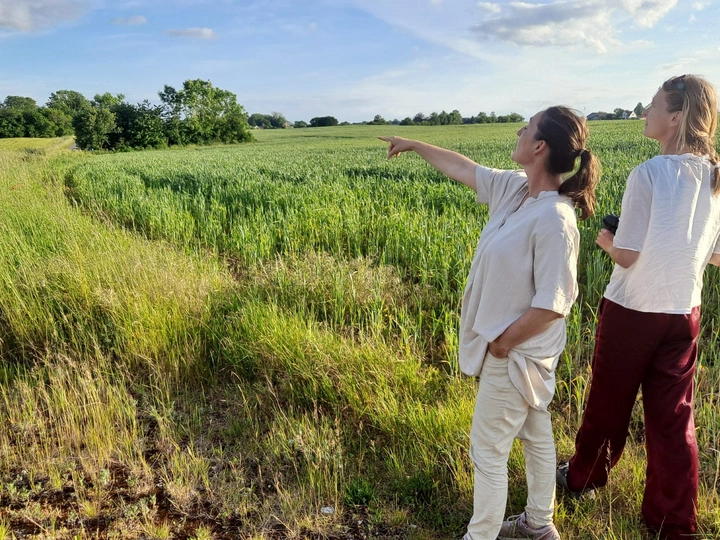From farmland to common forrest on waterresources

Skovgro has a board with 8 members. Chairperson i Lotte Grove.
Nis Rømer is an artist, member of the board and co-founder of Skovgro.
The idea is based on the fact that the drinking water from the underground in Denmark is insufficiently protected. Until now it has been permitted for farmers to use pesticides in very close proximity to the drinking water drillings. This is the case for thousands of drinking water wells in Denmark.
This has to change, but farmers who are not growing their fields organically and thus use pesticides, will lose land and earnings. From a legislative level it has been proposed to make voluntary agreements to solve this, but very few did.
Skovgro was initiated because this situation offered an opportunity to make an organization that bought up farmland on top of the water resources, and made them into communally owned forests. For some citizens it would be their own drinking water they protected, while at the same time they could enjoy a forest or nature area where they live and strengthen local biodiversity. Important to say though that our scope is not only local. We want to offer others nationally a way to be actively involved in countering climate change and make a real difference. The legal model that we made is for others to use and we are in the process of making offsprings. We have started the first communal forrest and are working on the next.
We believe that much of the change we have to make is also cultural. So an important ambition for us, is making art and new knowledge in the process. So we are artists, teachers, researchers, foresters and people with knowledge of public administration.
Making the legal and economic framework has take much of our resource. We are ready to explore further the landscape and space we make in a conceptual and artistic way. This is why we want to come to LINA, to share, learn, explore and develop further our critical spatial practice.